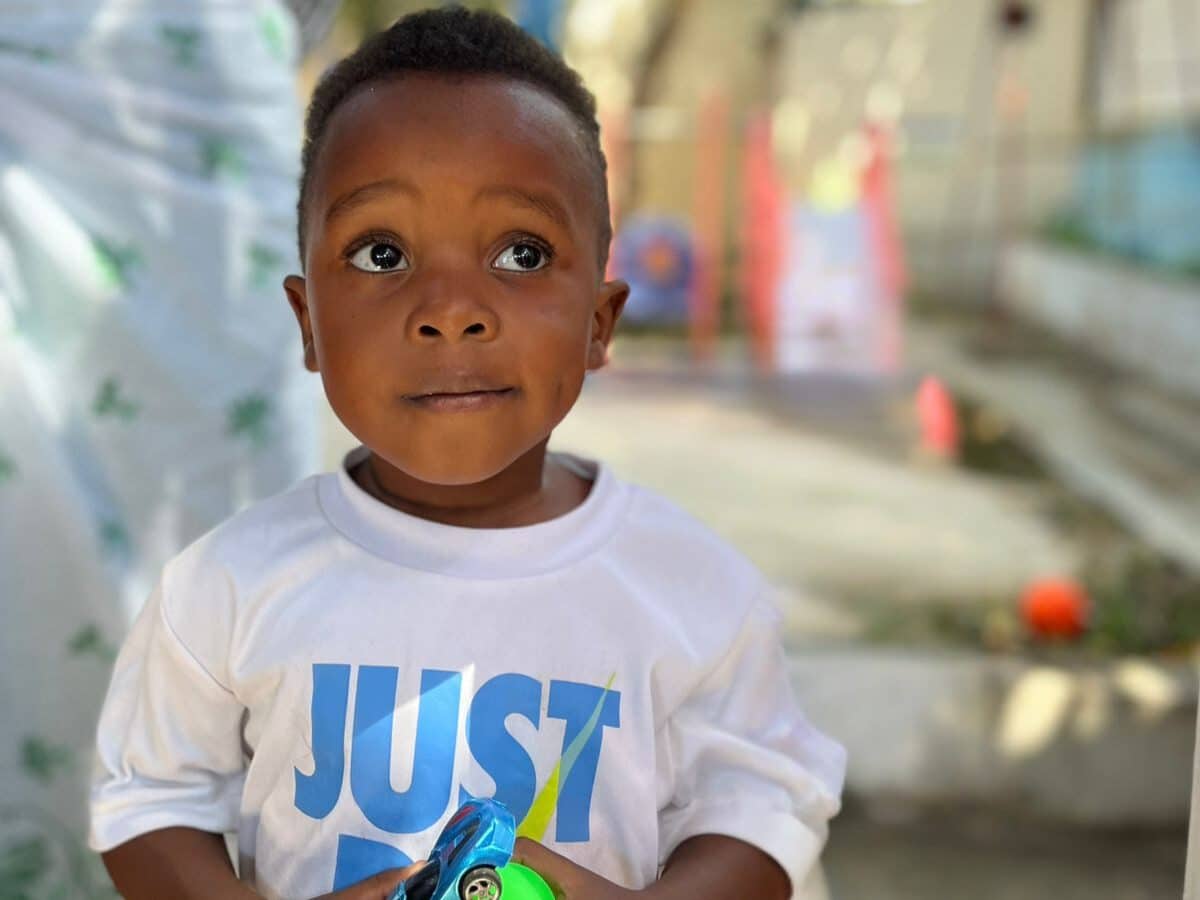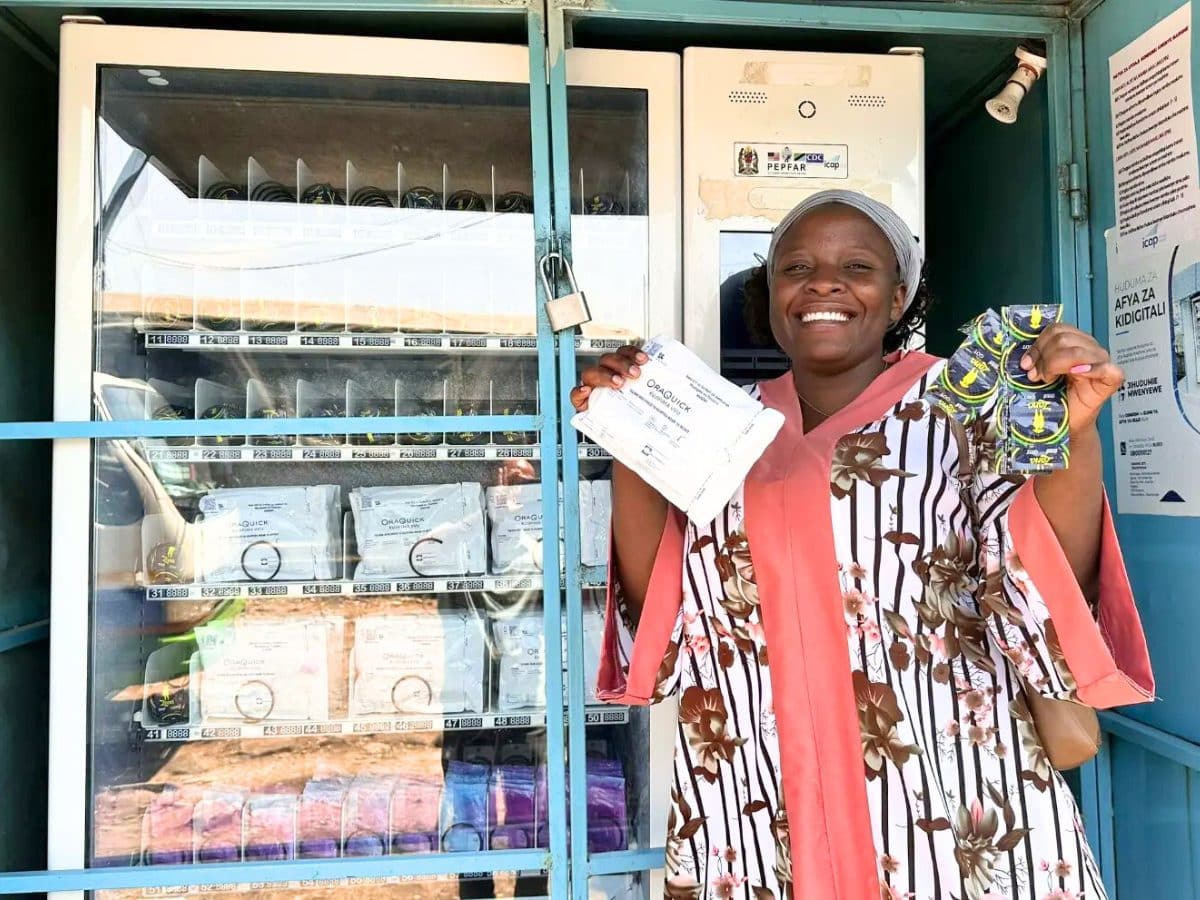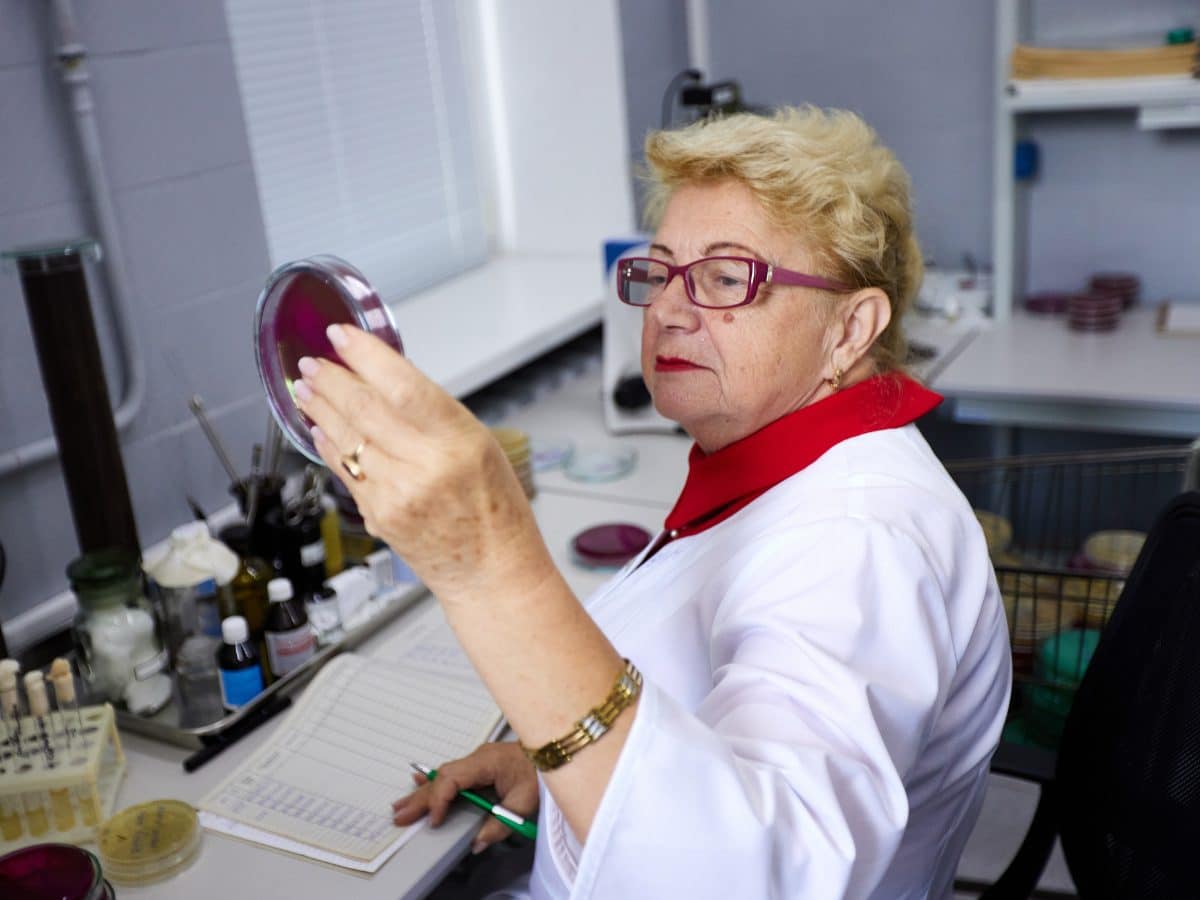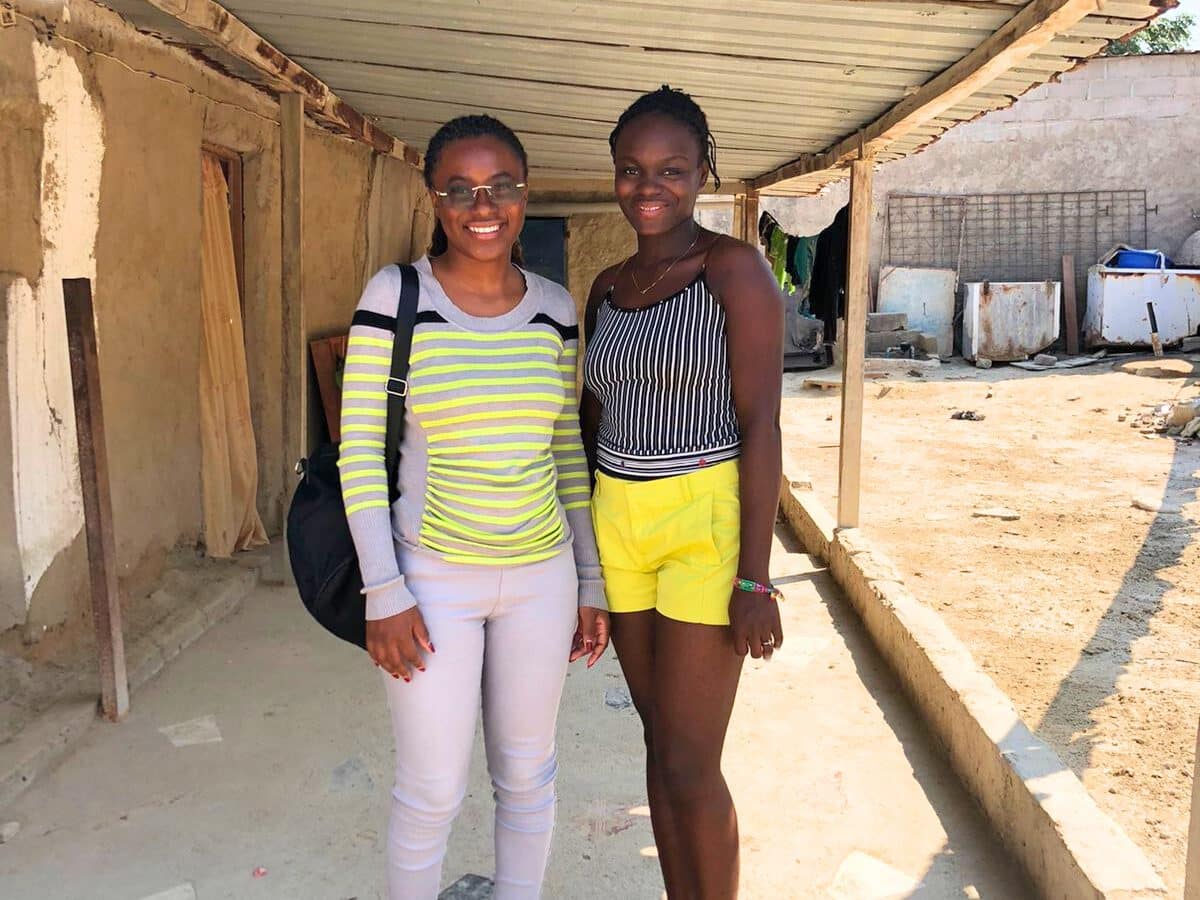“The community center is a safe and comfortable space,” said Rosalina Luís, a 23-year-old woman from Nampula, a city in northern Mozambique.
Rosalina recently started visiting the drop-in center (DIC) in Nampula, colloquially called “the community center,” which provides health services to female sex workers (FSW), their children, and their partners. As an FSW, Rosalina said her experience at the community center has helped her feel comfort she hasn’t felt before when accessing health services.
“The last time I went to a health facility, I turned back because it was too crowded,” Rosalina said. “At the community center, I’ve been tested for HIV and I’m currently on PrEP [pre-exposure prophylaxis] to reduce my risk of HIV infection. I admit I have more than one partner. I believe the community center is free from stigma and discrimination. People often judge without understanding. We need more comfortable spaces like this in Nampula.”
With support from the U.S. President’s Emergency Plan for AIDS Relief (PEPFAR) through the Centers for Disease Control and Prevention (CDC), and in collaboration with the Ministry of Health, ICAP in Mozambique launched the DIC on September 26, 2024, to create a safe space for FSW and their families to access HIV prevention, care, and treatment services, as well as other essential health services.
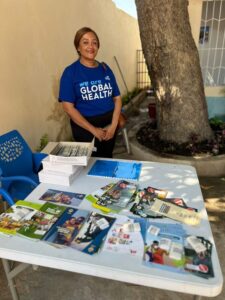
An ICAP staff member hands out educational materials on healthy choices during the drop-in center launch event.
The community center offers HIV testing, sexually transmitted infection (STI) screening and treatment, tuberculosis screening, PrEP and antiretroviral therapy (ART) initiation and continuation, cervical cancer screening and treatment, and general consultations for FSW, their children, and their partners. Importantly, it also serves as a space for socialization and recreation. The center regularly shows films, offers free Internet access, and provides a play area for children. In the future, the center will also offer educational and skills-building courses.
ICAP collaborated with the Watana Association, a Mozambican organization advocating for the rights of key populations, to launch the center. As part of this collaboration, Watana is responsible for mobilizing and creating demand of FSW to utilize the DIC, while ICAP supports the delivery of comprehensive health services integrated with recreational activities. ICAP predicts the community center will serve around 10 people a day or more, especially given its strategic location near hotspots regularly frequented by FSW.

Esmeraldo Junior, Watana supervisor
“There are around 14 hotspots in this area,” said Esmeraldo Junior, a Watana supervisor. “We believe this location is excellent to reach the subpopulation. The children’s area will provide a recreational space for the children, while also ensuring a safe environment for them.”
Mozambique’s 2022-2025 National HIV Prevention Roadmap identified FSW, their partners, and their children as priority groups in need of increased HIV prevention, care, and treatment interventions. Globally, the majority of FSW are mothers. The stigma and discrimination FSW often face in accessing health services – as well as their high mobility – impact their own ability to access and maintain HIV health services as well as their children’s access to health, education, and protection services.
ICAP’s family-centered approach of integrating critical health services with social strengthening interventions for FSW, their children, and their partners is essential for improving long-term health outcomes.
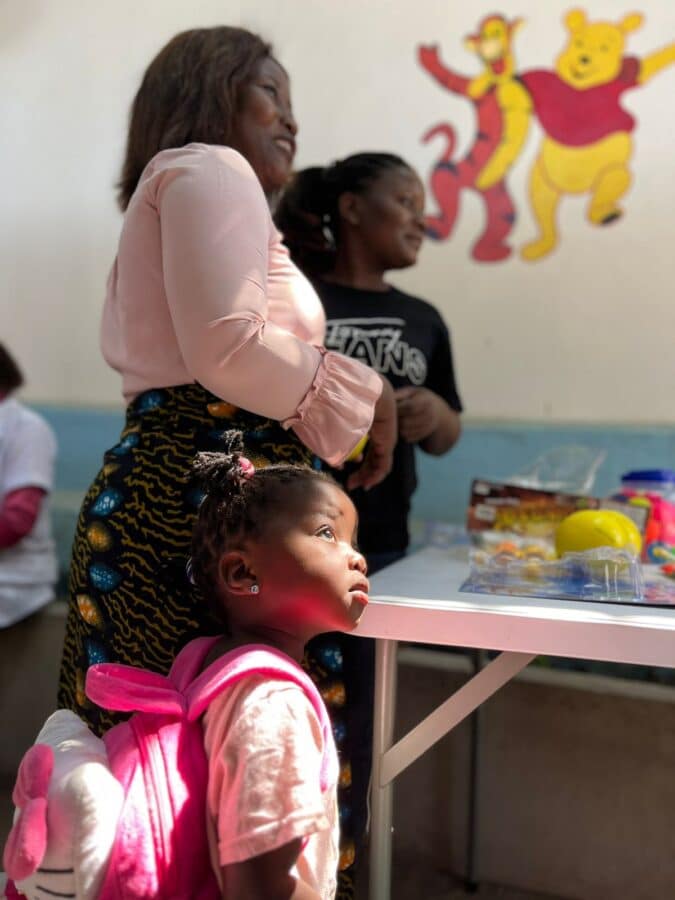
The drop-in center caters to families by offering games and activities that recipients of care can engage in with their children.
“Female sex workers have one of the highest HIV prevalences in the country, while also facing several other barriers to ensuring their wellbeing and the wellbeing of their families,” said Eduarda Pimentel De Gusmao, MD, MPH, country director of ICAP in Mozambique. “We are hopeful that this partnership and the drop-in center encourages healthy and happy families with limited obstacles in their way.”
“The beneficiaries feel understood,” said Byaombe, a clinical provider working at the community center. “I enjoy working here because I can spend more time with them; we have plenty of time to talk and we build a lot of trust. They feel comfortable and are very open at the community center.”
At the September launch, dozens of families attended the event, including 70 children. The event was also attended by representatives from the district health directorate, the provincial health council, and local partners. ICAP will continue to work in close collaboration with key population-led and targeted organizations, the local government, and civil society to improve access to safe, stigma-free, and high-quality health services at the drop-in center and other ICAP-supported health facilities.
About ICAP
A major global health organization that has been improving public health in countries around the world for two decades, ICAP works to transform the health of populations through innovation, science, and global collaboration. Based at Columbia Mailman School of Public Health, ICAP has projects in more than 40 countries, working side-by-side with ministries of health and local governmental, non-governmental, academic, and community partners to confront some of the world’s greatest health challenges. Through evidence-informed programs, meaningful research, tailored technical assistance, effective training and education programs, and rigorous surveillance to measure and evaluate the impact of public health interventions, ICAP aims to realize a global vision of healthy people, empowered communities, and thriving societies. Online at icap.columbia.edu


